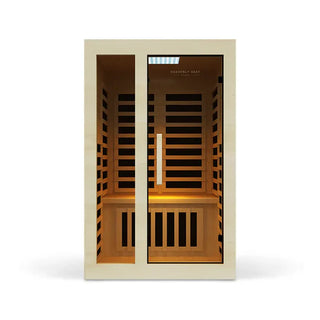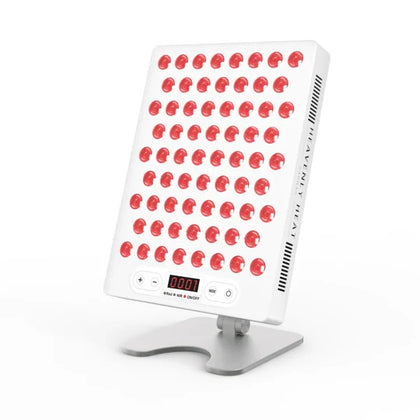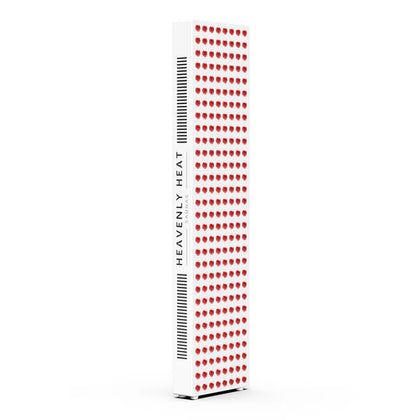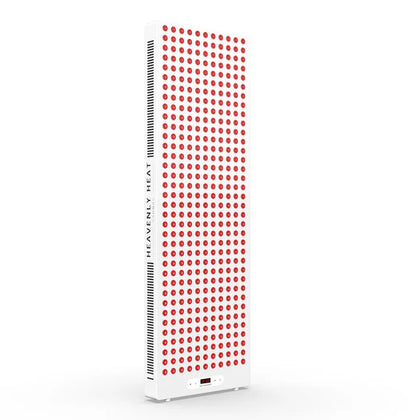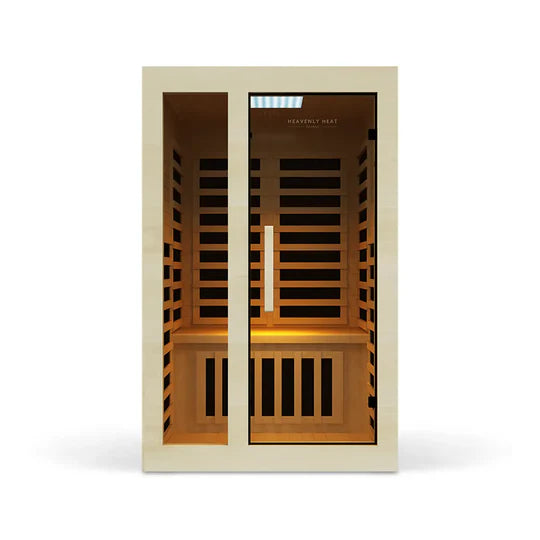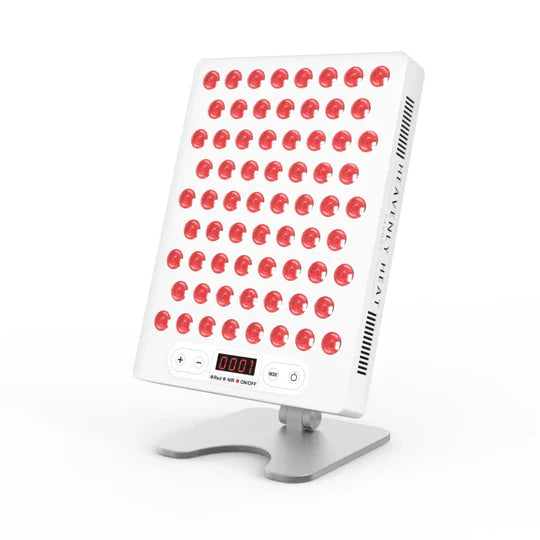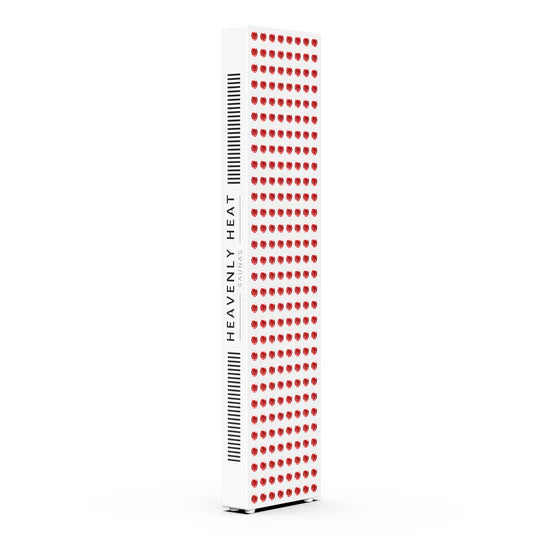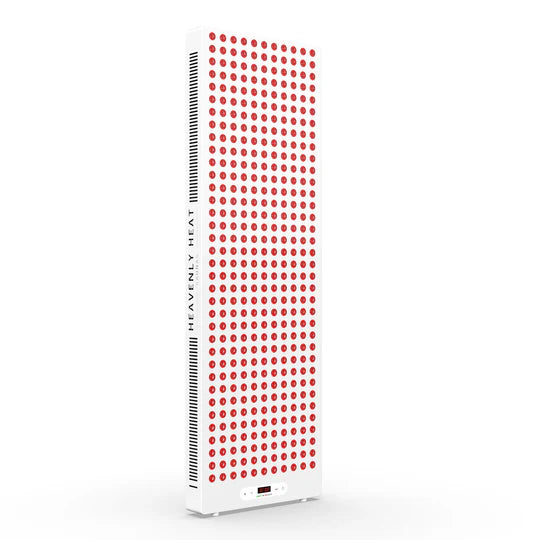Is Sauna Safe for Elderly People? Benefits and Considerations

Is sauna safe for elderly people? The answer isn’t so simple. Saunas offer incredible benefits like reducing stress, easing pain, improving heart health, and even boosting lung function.
But for older adults, overheating or dehydration can pose real risks. Without proper precautions, a relaxing sauna session could become dangerous.
So how can seniors enjoy saunas safely? Let’s dive into the key considerations.
Health Benefits of Sauna for Older Adults
Heart Health: Supports better circulation and cardiovascular wellness.
- Sauna helps your heart by improving blood flow: Sauna therapy improves blood circulation by causing blood vessels to expand, making it easier for the heart to pump blood. This helps oxygen reach different parts of the body more efficiently, supporting overall cardiovascular wellness.
- Using a sauna works like light exercise for your heart: Regular sauna use has been linked to a lower risk of heart disease. It helps the heart function better in a way that’s similar to the benefits of moderate physical activity, which is great for older adults.
- Sauna heat relaxes your blood vessels and lowers pressure: The warmth from saunas helps blood vessels relax and widen. This can naturally lower high blood pressure and make it easier for the heart to do its job.
- Sauna works better for blood pressure when combined with exercise: A study found that sauna use alone didn’t lower blood pressure in people with untreated high blood pressure. But when paired with exercise, it had a noticeable positive effect.
- Your heart pumps more easily after a sauna session: Research shows sauna baths increase how much blood the heart pumps while lowering resistance in the blood vessels. This means the heart works more efficiently without being overworked.
- More sauna sessions mean a lower risk of heart problems: Men who used a sauna 4 to 7 times a week had a much lower risk of sudden heart-related death, heart disease, and other cardiovascular issues than those who used it only once a week.
- Regular sauna use helps older adults keep their hearts healthy: These studies show that using the sauna regularly can strengthen heart function and support better cardiovascular health, especially for older adults.
Joint and Muscle Relief: Eases pain and stiffness.
-
The heat goes deep and loosens stiff joints: Heat from the sauna penetrates deep into muscles and joints, reducing stiffness and discomfort.
This can be particularly beneficial for older adults dealing with arthritis or chronic pain.
- Sauna heat reduces swelling that causes joint pain: Sauna therapy reduces inflammation, which is a major cause of joint pain. The heat increases blood flow, delivering oxygen and nutrients to repair damaged tissues.
- Better blood flow helps relax tight muscles: According to a study , heat-induced vasodilation in saunas helps lower blood pressure while promoting pulmonary circulation.
- Staying hydrated keeps sauna sessions safe: However, the study also found that sauna use may reduce blood supply to internal organs like the heart, liver, and kidneys, making hydration and proper session duration crucial for safety.
- Using sauna with other treatments can reduce pain and stress: Another study , combining sauna therapy with other treatments, helped a rheumatoid arthritis patient experience reduced pain, anxiety, and stress while improving sleep and mobility.
- Regular sauna use makes everyday movement easier: Regular sauna sessions can provide similar relief, making everyday activities easier and more comfortable.
- 15 to 20 minutes in the sauna works best for relief: To maximize pain relief, experts suggest staying in the sauna for about 15–20 minutes per session.
Immunity Boost: Strengthens your body’s defense system.
- Your body makes more infection-fighting cells after a sauna: Sauna therapy helps your immune system by increasing white blood cells, the ones that fight germs and viruses. This means your body is better prepared to defend itself.
- The heat tricks your body into acting like it has a fever: When you sit in a sauna, your body reacts as if it has a mild fever. This “fake fever” turns on your natural defenses and helps keep your immune system active and alert.
- Regular sauna use helps you catch fewer colds and flu: People who use saunas often report fewer sick days. That’s because saunas help your body get rid of toxins and keep your immune response strong.
- Saunas calm down the hidden inflammation that weakens your immunity: Chronic inflammation often invisible, is common as we age and can harm our immune system. Sauna sessions help reduce that inflammation, making your body more balanced and less prone to illness.
- Research shows saunas really do support your immune system: Studies have found a strong link between sauna use and better immune health. So this isn’t just a wellness trend, it’s a proven way for older adults to stay healthy.
Breathing and Lung Health: Helps you breathe easier.
- Warm air in the sauna makes it easier to breathe: Sauna therapy helps older adults breathe more easily by improving lung function. The warm, moist air can loosen mucus and clear nasal congestion, making it easier to take deep breaths.
- Sauna heat reduces swelling in your airways: The heat and humidity can calm inflammation in the airways. This is especially helpful for older adults who have asthma or other breathing problems.
- Better blood flow helps your lungs work better: Using a sauna improves blood circulation, which helps deliver more oxygen throughout your body. This makes it easier for your lungs to do their job and support easier breathing.
- Regular sauna use helps reduce shortness of breath: Many older adults say that they feel less short of breath after using the sauna regularly. It supports overall lung health and makes breathing feel more comfortable over time.
Stress Relief & Relaxation: Calms the mind and body.
- Spending time in a sauna helps lower your stress levels: Spending time in a sauna promotes relaxation by reducing stress hormones like cortisol. This natural drop in cortisol helps the mind and body feel calmer.
- The heat from the sauna relaxes your muscles and body: The sauna’s warmth helps relax muscles, easing physical tension throughout the body. This creates a soothing and comforting experience, especially beneficial for aging muscles.
- A sauna session can boost your mood naturally: Sauna sessions trigger the release of endorphins, your body’s natural mood boosters, helping older adults feel more positive and uplifted after use.
- Using a sauna feels like meditation for your mind: Many people compare the calming effects of a sauna to meditation. This peaceful mental state supports emotional balance and calmness.
Better Sleep: Promotes deeper, more restful sleep.
- Relaxing in the sauna helps your body get ready for sleep: The heat helps the body transition into a relaxed state, soothing the nervous system and lowering cortisol levels, reducing stress that often interferes with sleep.
- Regular sauna use can make it easier to sleep deeply: Many older adults struggle with insomnia. Regular sauna use has been shown to promote deeper, more restorative sleep cycles, making it a helpful natural remedy.
- Cooling down after the sauna tells your brain it’s bedtime: The body’s natural cooling process after a sauna session tells the brain it's time to rest, which makes it easier to fall asleep and stay asleep through the night.
- Using the sauna in the evening can help you sleep better: Experts recommend using the sauna in the evening hours to get the most sleep-enhancing benefits , aligning it with the body’s natural wind-down routine.
Healthy Skin: Clears and rejuvenates your skin.
- Sweating helps your skin get rid of dirt and toxins: When you sit in a sauna and sweat, your body pushes out impurities through your pores. This helps your skin look cleaner, fresher, and more alive.
- Better blood flow makes your skin look healthier: Saunas improve circulation, which means more oxygen and nutrients reach your skin. This gives your skin a healthy glow and improves its texture.
- Heat opens your pores and keeps them clean: The warm temperature unclogs your pores, which helps reduce pimples and breakouts. With regular sauna use, your skin stays clearer.
- Sauna heat helps your skin stay firm and smooth: The heat encourages your body to make more collagen. This keeps your skin tight and reduces sagging or wrinkles as you age.
- You need to drink water to keep your skin from drying out: Sweating in a sauna can dry out your skin if you don’t stay hydrated. Drinking water after each session helps your skin stay soft and balanced.
- Your skin can glow and feel fresh at any age: Using a sauna regularly is a simple, natural way to keep your skin looking bright and refreshed, no matter how old you are.
Detoxification: Flushes out toxins naturally.
- Infrared heat goes deep to flush out toxins: Instead of heating you from the outside, infrared saunas heat your body from the inside out. This deep heat activates your body’s natural detox process more effectively.
- Infrared saunas clean your body better than regular ones: Infrared saunas are seven times more effective for detoxification than traditional saunas, according to Dave Asprey , founder of Bulletproof Coffee.
- Sweating helps your body get rid of harmful stuff: When you sweat in a sauna, your body naturally pushes out heavy metals, chemicals, and other toxins that build up over time.
- Your liver and kidneys get a boost when you detox: This cleansing process supports your liver and kidneys, two major organs that work hard to remove waste and toxins from your body every day.
- Drinking water helps your body flush out toxins: Staying hydrated before and after a sauna session is important. It helps your body replace lost fluids and improves the detox process.
- Using a sauna regularly helps keep your body clean: Health experts often recommend using saunas regularly as part of a healthy routine to keep your body balanced and toxin-free.
Brain & Mental Health: Supports memory and mental clarity.
- Sauna helps your brain get more blood and oxygen: Sauna therapy boosts brain function by improving blood flow and oxygen delivery to the brain, which can help with memory and focus.
- Sitting in a sauna can clear your mind: The calming effect of sauna use helps reduce brain fog and supports clear thinking and mental sharpness.
- Using sauna often may lower your risk of serious mental illness: One study found that men who used a sauna 4 to 7 times a week had a much lower chance of developing psychotic disorders compared to those who used it just once a week.
- Regular sauna use may protect your brain from stress and inflammation: Stress and inflammation are linked to brain problems, and sauna sessions help lower both, making them good for your mental health.
- Sauna sessions can improve your mood and energy: Research shows that a study found Far-infrared low-temperature sauna (FILTS) therapy helped older adults feel better by improving their walking, breathing, and emotional well-being.
- Sauna can ease problems like cold hands, trouble sleeping, and pain: Many older adults found relief from common issues such as cold extremities, insomnia, and chronic pain after using sauna therapy.
- Saunas help you relax and sleep better, which keeps your mind sharp: Better sleep and deep relaxation from sauna use support a healthy and active brain as you age.
Risks and Precautions for Seniors in Saunas
Dehydration – Increased risk of fluid loss
- Older people lose water more easily in saunas: Older adults are more prone to dehydration in saunas because their bodies hold less water and their thirst signal isn’t as strong.
- Hot temperatures make the body sweat a lot: High heat in saunas causes heavy sweating , which quickly reduces fluid levels, something seniors need to be extra careful about.
- Dry mouth or dizziness could mean dehydration: Early signs like dry mouth, dizziness, or dark-colored urine can be a warning that the body is running low on fluids.
- Too much sweating can affect body salts: Prolonged sweating may cause a drop in important body salts (electrolytes), leading to problems like muscle cramps and confusion.
- Drinking water before and after helps a lot: To stay safe, seniors should drink 500ml to 1 liter of water before and after using the sauna to replace lost fluids.
- Shorter sauna sessions reduce the risk: Limiting sauna time to just 10–15 minutes can help prevent too much fluid loss and keep seniors better hydrated.
Overheating – Body temperature may rise too high
- Older bodies can’t cool down as easily: Seniors overheat more quickly because their bodies don’t manage temperature as well as they used to. They also sweat less than younger people, making it harder to stay cool in a hot sauna.
- Feeling sick in a sauna can be a warning sign: Signs like nausea, headache , or confusion may mean the body is getting too hot. These are early warnings that should not be ignored.
- Staying too long in the heat increases the danger: To avoid overheating, seniors should keep sauna sessions short, around 10 to 15 minutes, and step out right away if they start to feel unwell.
- Feeling dizzy means it’s time to cool down: If dizziness happens, it’s best to sit down and drink cool water. This helps bring the body temperature back to normal.
- Light clothes and no alcohol make it safer: Wearing lightweight clothing and avoiding alcohol or caffeine before using a sauna can help prevent the body from overheating.
Dizziness & Fainting – Can cause balance issues
- Heat from saunas can suddenly drop your blood pressure: Sauna heat makes your blood vessels widen, which lowers your blood pressure . For seniors, this sudden drop can cause dizziness and even fainting, especially if they already have circulation issues.
- Getting dehydrated makes fainting more likely: When you sweat in a sauna, you lose fluids. If you don’t drink enough water, your risk of dizziness and fainting increases, especially in older adults.
- Health problems like diabetes and heart disease make it worse: Seniors with conditions like diabetes or heart disease are more likely to feel dizzy or faint in a sauna. These health issues make it harder for the body to handle heat and low blood pressure.
- Feeling dizzy, sick, or seeing blurry means it’s time to stop: Warning signs like lightheadedness, nausea, or blurred vision often come before fainting. Seniors should take these signs seriously and get out of the sauna immediately.
- Standing up too fast or using the sauna on an empty stomach can trigger dizziness: To stay safe, seniors should get up slowly, eat something beforehand, and drink water. If they feel dizzy, they should sit down and cool off right away.
Heart & Blood Pressure Changes – May strain the heart
- Sauna heat makes your heart beat faster: The warmth of a sauna causes your heart rate to go up, much like light exercise. While this isn’t always bad, it can put extra pressure on the heart.
- Quick temperature changes can confuse your blood pressure: Moving quickly from hot to cold (or vice versa) can cause sudden spikes or drops in blood pressure. For seniors, this can lead to dizziness or strain on the heart.
- Heart problems make sauna use more risky: If you already have high blood pressure or heart disease, the heat can increase the chance of irregular heartbeats or even a serious heart event.
- Saunas may help blood flow, but only if used carefully: Some research shows that sauna use can improve circulation, but it’s important to use them moderately and not for too long, especially if you’re older.
- Cooling down too fast can stress your heart: Jumping into cold air or water right after the sauna can shock your body. Seniors should take time to cool down slowly to avoid extra pressure on the heart.
Stroke or Heart Attack Risk – Heat stress on the body
- Heat can make the heart work too hard: When seniors are exposed to high heat, like in a sauna, it puts extra pressure on their heart. This stress can raise the chance of a stroke by overworking the cardiovascular system.
- Too much time in the sauna can reduce blood flow: Staying in the sauna too long can lower blood flow to important organs. For older adults, this increases the risk of a heart attack, especially if they already have heart issues.
- Confusion and chills can be signs of heat stroke: Warning signs like feeling confused, a fast heartbeat, sweating too much, or suddenly feeling cold could mean the body is overheating and heading toward heat stroke.
- Leaving the sauna quickly can prevent serious problems: If a senior feels weak or dizzy, they should leave the sauna right away. Cooling down and drinking water can help prevent heat-related health emergencies.
Breathing Problems – Hot air can make it harder to breathe
- Hot air can make it harder for seniors to breathe: Hot, dry air can irritate the respiratory system, making breathing difficult, especially for seniors with asthma or COPD.
- Both steam and dry saunas can cause breathing trouble: Dry saunas may cause throat irritation, while steam saunas might lead to shortness of breath. Both types can be uncomfortable for people with lung issues.
- Seniors should choose lower heat and stay in for less time: Those with breathing problems should go for mild temperatures and limit how long they stay in the sauna to avoid breathing difficulties.
- If it’s hard to breathe, leave the sauna right away: If shortness of breath starts, step out and get fresh air. Breathing through a damp cloth can also help cool and filter the hot air.
Skin Burns & Irritation – Sensitive skin may react
Aging skin is thinner and more sensitive, making it prone to burns and irritation in saunas.
High temperatures can cause redness, itching, or rashes.
Seniors should avoid sitting on extremely hot surfaces and use towels for protection.
A sauna temperature above 80°C (176°F) can be too harsh for elderly skin. Moisturizing after a sauna session can help retain skin hydration and prevent irritation.
Electrolyte Imbalance – Loss of key minerals
Sweating in saunas leads to loss of essential minerals like sodium, potassium, and magnesium.
Seniors are more vulnerable to imbalances, which can cause fatigue, weakness, and muscle cramps.
Drinking electrolyte-rich fluids or consuming foods like bananas and nuts before sauna sessions can help replenish lost minerals. Avoiding excessive sweating by taking shorter sessions is also crucial.
Existing Health Issues – Can worsen some conditions
Saunas can be risky for seniors with conditions like high blood pressure, heart disease, and diabetes.
Heat exposure may cause sudden blood pressure drops, worsening dizziness. For diabetics, sauna use might lead to unstable blood sugar levels.
Seniors with kidney disease should avoid saunas, as sweating may strain kidney function.
Consulting a doctor before regular sauna use is recommended to prevent complications.
Slips & Falls – Lightheadedness increases fall risk
Lightheadedness in saunas increases the risk of falls, which can be dangerous for seniors.
Heat can lower blood pressure, affecting balance and coordination.
Wet floors and slippery benches further raise the risk of slipping. Seniors should use non-slip sandals and hold onto handrails when moving around.
Staying hydrated helps prevent dizziness, and taking slow, careful movements can reduce fall hazards.
Ideal Sauna Frequency for Elderly Individuals
- Most seniors do best with 2 to 3 sauna sessions a week Elderly individuals should use a sauna about 2 to 3 times per week, depending on their overall health and how well their body handles heat.
- Short sauna sessions with rest days in between are safest: A safe routine includes short sauna sessions of 10 to 15 minutes, with at least one day of rest between uses to let the body recover.
- It’s better to start slow than to overdo it early on: While daily sauna use is possible, seniors should begin slowly and pay attention to how their body responds before increasing the frequency.
- Your health, fitness, and hydration affect how often you should go: Factors like hydration, medical conditions, and overall fitness play a big role in deciding how often a sauna is safe for an older adult.
- Waiting at least 24 hours between sessions gives the body time to recover: After each sauna session, it’s best for seniors to wait at least a full day before going again to avoid putting too much stress on the body.
Infrared vs. Traditional Saunas for Seniors
- Seniors need to pick the right type of sauna: Infrared and traditional saunas work differently, and for seniors, choosing the right one can make a real difference in comfort and health.
- Traditional saunas heat the room, infrared saunas heat your body: Traditional saunas warm up the whole space, while infrared saunas use light to heat your body directly. This makes the experience feel very different.
- Infrared saunas feel gentler, which is safer for seniors: Because infrared saunas run at lower temperatures, they’re often safer and more comfortable, especially for seniors with heart issues or heat sensitivity.
- Infrared saunas may help your body detox better: Both types help the body release toxins through sweat, but infrared heat goes deeper into the skin, which may make it more effective.
- Infrared saunas are easier to take care of: You don’t need water or high heat for an infrared sauna, which means less upkeep, something many seniors appreciate.
- Infrared saunas can help reduce muscle and joint pain: They’re known for helping with aches and pains, making them a good choice for seniors dealing with soreness or stiffness.
When Seniors Should Exit a Sauna
- If you feel dizzy or lightheaded, get out right away: When seniors start feeling dizzy or lightheaded in a sauna, that’s a clear sign it’s time to step out. These feelings can lead to fainting and should never be ignored.
- Feeling too hot or weak means it’s time to leave: If you begin to feel overheated or unusually weak, it could be the start of heat exhaustion. This condition can get worse quickly, so it’s safer to exit the sauna immediately.
- A headache in the sauna is a warning to stop: Headaches can get worse with heat. If one starts or gets stronger while you’re inside, that’s your cue to step out and cool down.
- If breathing gets harder, leave the sauna fast: Seniors with asthma or any breathing issues should exit the sauna if they feel short of breath. The heat can make breathing problems worse very quickly.
- Any unusual feeling is a good reason to step out: The safest move is to listen to your body. If something doesn’t feel right, whether it’s discomfort, dizziness, or just a gut feeling, leave the sauna, rest, and hydrate.




